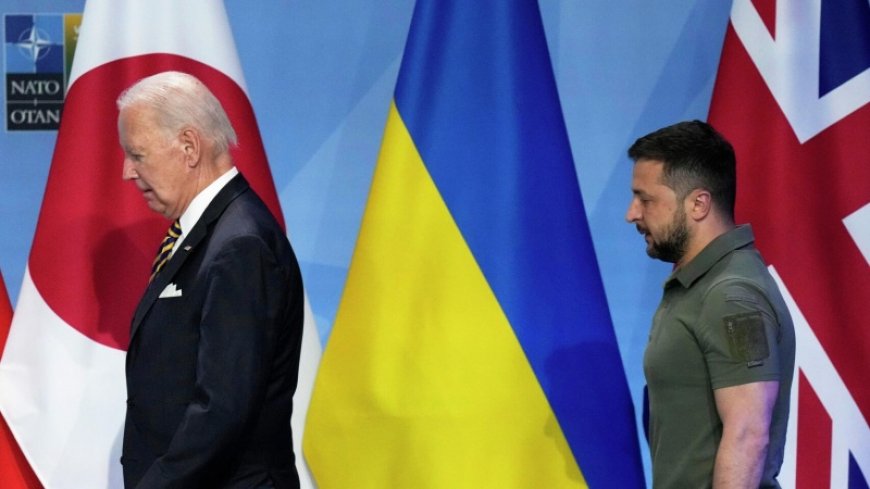The White House warned the US Congress about the end of funds for aid to Ukraine
Speaking about the need to approve tens of billions of dollars in financial and military aid to Ukraine, the White House warned in a letter to Congress that "America's time and money for Ukraine are almost running out."

The director of the White House Office of Management and Budget, Shalanda Young, emphasized in a letter sent to the Republican head of the US House of Representatives, Mike Johnson: “Ceasing US military assistance to Ukraine would bring the country to its knees on the battle fronts. It would not only put threat to reach Ukraine, but will also increase the likelihood of Russia winning the war." In her research, she wants Johnson and the US House of Representatives to agree to pass a new bill to send more arms aid to Ukraine. The Biden government's new and very serious warning to the US Congress about the end of funds and time to provide aid to Ukraine, given the long delay in approving new aid to Kyiv and the presence of serious opposition in Congress, especially from Republicans, makes sense in the House of Representatives. Republican lawmakers, who hold a majority in the House of Representatives, effectively blocked passage of the White House's proposed budget for Kyiv, which would have meant cutting off support for Ukraine's largest military donor. Republicans, regardless of their differing views on the Ukraine war, are eager to cut federal government spending and believe the Biden administration has enormous spending that needs to be adjusted to prevent the federal government's debt from rising. On October 20, US President Joe Biden, a Democrat, sent to Congress for approval a $106 billion package to address the most pressing needs of the moment, namely aid to Israel and Ukraine, countering China and responding to immigration at the southern border. But Biden's request has faced obstacles in Congress, especially from Republican representatives. These representatives believe the money should be spent on other issues, including policies related to the U.S.-Mexico border and stopping the flow of immigrants. In addition, the war in the Gaza Strip also reduced attention to Ukraine, and American lawmakers in the House of Representatives allocated an additional budget of $14.3 billion to the Zionist regime in a separate resolution, which, of course, the White House opposed and threatened to veto. even if it is approved by the Senate. In fact, America, as the first supplier of military aid and weapons to Ukraine, has been in great budget uncertainty for several months due to endless unrest in that country's Congress. The US Congress, consisting of a Republican-majority House of Representatives and a Democratic-majority Senate, has yet to vote on a final budget for the new fiscal year, which began last October. The federal government is currently operating under an emergency extension that expires in mid-January 2024. Thus, the US Congress did not approve a new aid budget for Ukraine. Thus, the American government, which until now has said that it will support Kyiv until Russia loses the war with Ukraine, is now emphasizing that if Congress does not approve the budget being considered by the White House within a month, it will not be able to help Ukraine. Without Washington's help, Ukraine's defeat in the war with Russia will be almost inevitable. At a time when Kyiv is in great need of American financial and weapons resources to continue the war with Russia. During US Defense Secretary Lloyd Austin's recent visit to Kyiv in November, Ukrainian Army General Staff Commander Valerii Zaluzhnyi shared with him Kyiv's needs to continue the war with Russia. Zaluzhny emphasized that “Ukraine needs 17 million shells to continue the war, and to liberate all Ukrainian lands, forces and resources worth 350-400 billion dollars are needed.” When the US Secretary of Defense was informed of Ukraine's need for 17 million rounds, he was shocked, because such a quantity of ammunition is not easily collected throughout the world. In addition, the Ukrainians’ request for $350-400 billion in aid is, in principle, beyond the capabilities of not only America, but also the Western bloc. Thus, it seems that if new financial aid and weapons are not approved in the US Congress due to the reluctance and ability of the Europeans to continue to help Kiev, Ukraine has practically reached a dead end on the path to war with Russia and is forced to accept a ceasefire and sign a peace treaty with Moscow.













































